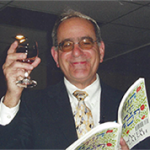There are many reasons some rheumatologists have chosen rural practice over working in urban settings. For some, it was a chance for both physician spouses to be in the same practice area. For others, the draw was the lifestyle—a much slower pace than in the cities.
“When I left my fellowship in the 1970s, it was the lifestyle and geography that brought me to rural Maine,” says Sidney Block, MD, a private practice rheumatologist with Block and Gratwick, PA, in Bangor, Maine. “Leaving New York City, my wife and I had the opportunity to work in a city and visit the country or live in the country and visit the city. To best raise our children, we opted for the latter and have never regretted the choice.”
Surroundings Important
The surroundings are another amenity that brings many to practice off the more highly traveled paths.
“Coming to Minocqua … was a perfect combination for me,” noted Martina Ziegenbein, MD, who works in a group practice at the Marshfield Clinic office in Minocqua, WI. “I had visited the area while doing my residency in Marshfield and loved the nature and the surroundings.”
Another reason she picked a rural area was to get a J-1 visa waiver. However, even though her service time expired two years ago and she could go anywhere in the United States, she has stayed in Minocqua.
There is a whole different feel to practicing medicine outside of the city. More collegial, even with my patients.
—Karen Kolba, MD
Patients Bring Satisfaction
The patients themselves bring a lot of satisfaction to the practice of rheumatology in rural areas. The physicians see an independent pride in their patients. For example, Dr. Block points to their desire to make sure he gets some sort of value for his time.
“One of the joys of rural practice is the patient population I care for,” he continued. “My patients come to work with me, not challenge me. They are a strong-mannered and feisty lot, and they have had to be, living in one of the poorest areas of the United States. The occasional bag of potatoes or pot of lobster left in the office attests to their pride.”
In the country, you are also more likely to see your patients in social situations. The doctors all agree that patients usually keep the medical concerns in the office and do not often intrude when the physician is seen out and about.




